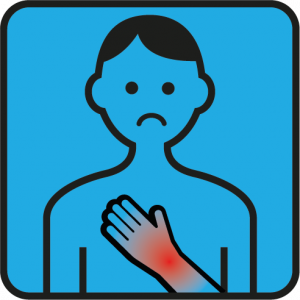
There are numerous ligaments, tendons and muscles surrounding the wrist joint. You can injure any of these if you fall on your wrist or bend it in a direction it shouldn’t. The joint has moved a little further than it is used to and the joint, ligaments and muscles have been overstretched.
For the first 48-72 hours we suggest POLICE treatment:
Protection - It is important that you look after your wrist don’t play contact sport or undertake any fast or sudden movements; avoid movements which makes the pain in the wrist worse.
Optimal Loading - Only use your wrist where is comfortable. If it hurts, don’t do it!
Ice - Use an ice pack or frozen peas over the injured wrist in ten minutely intervals for approximately an hour a day, this should reduce swelling and inflammation. Please ensure ice is used with caution and never placed directly onto skin. A tea towel can be used as a first layer on your skin. After ten minutes of use, ensure your skin is allowed time to warm back up to normal temperature then reapply.
Compression - Use a simple elastic bandage to support your wrist. This will make it more stable and help with swelling. Always make sure that you remove the bandage at night.
Elevation - You should raise your wrist to the level of your heart or higher (if you are able to) as often as possible. This should reduce swelling and inflammation.
By this point your wrist may feel slightly better. It’s now is to start moving the joint. Making gentle movements such as lifting your wrist up and down and moving it side to side can help work the surrounding muscles and tendons. Clenching to a fist and straightening out your fingers will also help.
Simple analgesics can be used after injury, most of which can be bought over the counter in shops, supermarkets or pharmacy’s. Examples are:
You may have been prescribed an alternative pain killer, please refer to specific advice for that tablet if this is the case.
Most injuries take 2-3 weeks to recover but can sometimes take up to 6 weeks to be completely comfortable.
You may have been given a follow-up appointment with a physiotherapist. It is important that you keep your appointment to make sure your wrist recovers fully.
If you have any ongoing concerns or queries about your wrist injury you should contact NHS 111 or your local GP. If your concern is an emergency, attend your local Emergency Department.
Emergency Department
Bradford Royal Infirmary
Duckworth Lane
Bradford BD9 6RJ
Bradford Teaching Hospitals NHS Foundation Trust is a smoke-free organisation. You are not permitted to smoke or in use e-cigarettes in any of the hospital buildings or grounds.